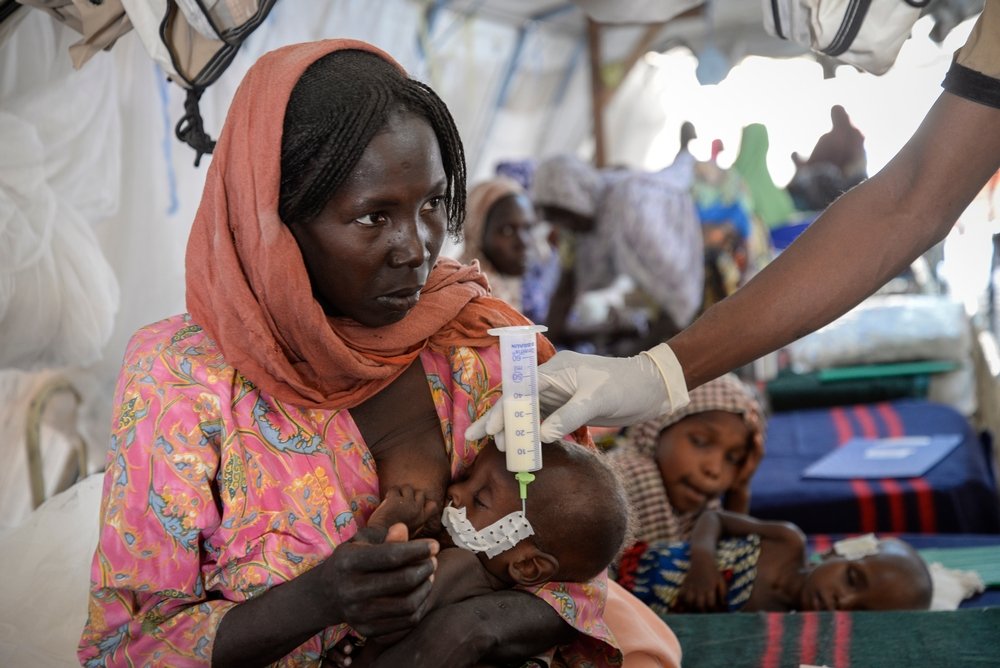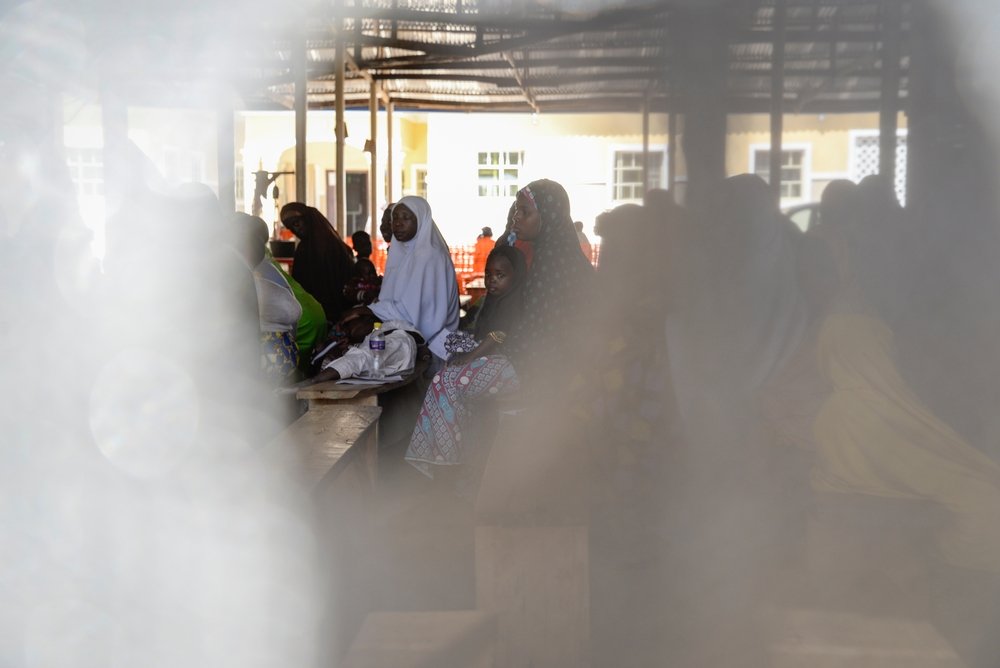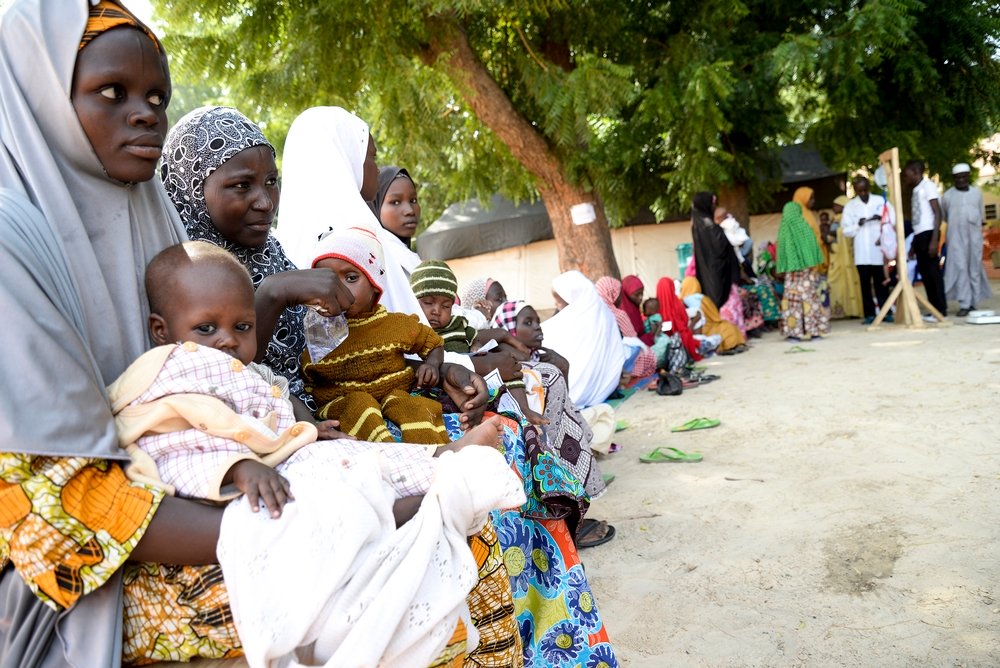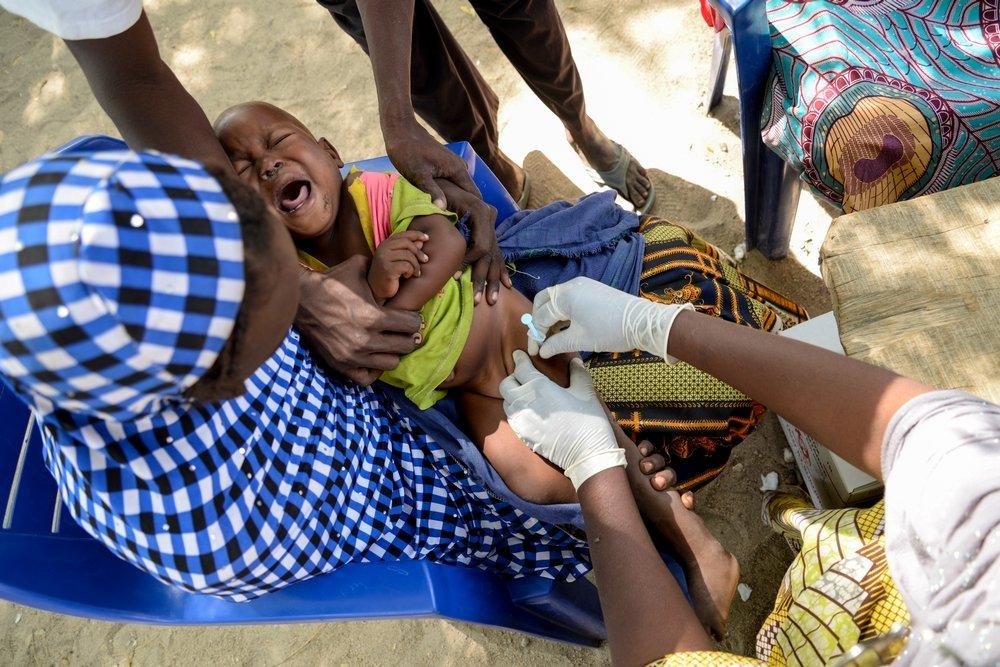
Nigeria: Paediatric specialist Marco Olla worked on MSF malnutrition projects in Maiduguri, the capital of Borno State in. He describes the scope of the crisis in Maiduguri, the medical impact of malnutrition on children and the treatment provided by MSF teams.
As a paediatrician, how can you describe the current emergency in Borno?
In Borno, apart from the high patient numbers, we have seen medical alarm signals that indicate the dimension of the crisis. In malnutrition crises, we typically treat children between six months and five years old. They are most vulnerable at this age, and depend directly on their mothers and fathers to survive. But if you see many malnourished children over five years old, then you know the situation is really bad and a severe nutritional crisis is unfolding. And this was the case in Maiduguri.
In Maiduguri, in the inpatient department we run in Maimusari district, we have been admitting children of older than 5 years old, suffering from malaria, pneumonia or other infections, and then realizing that they were malnourished. I have seen children of 7 or 10 years old presenting with forms of acute malnutrition, which is quite unusual.
For example, a mother recently came to one of our health centres with her seven-year-old daughter. The girl was severely malnourished and had diarrhoea. We immediately hospitalized her in our inpatient feeding centre. When you looked at her, she didn’t laugh, she didn’t smile. The mother told us they fled from a village east of Maiduguri without the father.
They settled in Muna Garage, a makeshift camp on the outskirts of the city. They stayed there for more than a month, but the millet and rice rations they received were much too little, and they didn’t have money for the state health facilities.

Which response is MSF providing to this emergency situation?
In MSF health centres in Bolori and Maimusari in Maiduguri, we are screening for malnutrition all children up to 15 years coming for a medical consultation. If we see they are affected by acute malnutrition, whether it is a moderate or severe form, we treat them in our feeding centres.
Usually we just treat children with severe malnutrition in our programmes but due to the lack of food we had to extend the admission criteria and to start also treating children under five suffering from moderate acute malnutrition in order to prevent them from falling into the severe form of acute malnutrition.
For the treatment of malnutrition, we are not targeting only children. We also take care of pregnant women who often get not enough food. They risk dying during the delivery or they are likely to give birth to weak babies exposed to malnutrition. So we distribute food to pregnant women during prenatal consultations and when women come to the postnatal consultations, and we screen their babies for malnutrition.
What exactly happens when a child does not get enough to eat?
The body’s whole system is affected, and the metabolism is totally altered. There are two main manifestations of malnutrition in children: marasmus and kwashiorkor. A child with marasmus is emaciated, looking like skin and bones. Kwashiokor is characterized by oedema (swelling).
Both forms are related to deficiency of essential nutrients like proteins, vitamins and minerals. The immune system is particularly affected. This is the reason why they are susceptible to develop infections.
When malnourished children die, most of the time they die of an infection. Their body just can’t fight infection any more. Malnutrition and infections form a vicious circle. A malnourished child is prone to fall sick, and the disease aggravates the malnutrition. The deadly medical complications range from pneumonia, meningitis and malaria to diarrhoea and sepsis.
How do you treat malnourished children?
Severely acute malnourished children with complications are hospitalized and we provide them with a nutritional and a medical treatment. For feeding, we use therapeutic milk to stabilize their metabolism. Some of them are so weak that they refuse to eat. In this case, we feed them via a nasogastric (nose to stomach) tube. After this stabilization phase, we give them ready-to-use therapeutic food, a peanut-based paste. The medical treatment consists of the treatment of other diseases – comorbidities, in medical terms – like pneumonia, diarrhoea, and malaria.
Severely acute malnourished children without complications and children with a moderate form of malnutrition are treated at home and followed up in our ambulatory facilities. We provide their mothers with ready-to-use therapeutic food. The duration of the treatment is usually four to six weeks.

For you personally, what has been remarkable about this crisis?
What is really tough here is the stories of the patients. I remember a mother who came with a two-year-old boy to our feeding centre. The family had fled the conflict, their house was destroyed, the father died. The woman then lost one of her four children in riots during the conflict, two others died of measles, and now she was here with her last son, who was suffering from severe malnutrition. When she finished her story, she started to cry. Many people really went through hard things, they are traumatized. They are struggling to survive, and many children are struggling to survive. Fortunately, this boy didn’t die.
At the same time, it’s good to see the change in the behaviour of the children while they recover. They suddenly start to interact with you, they start to laugh. Like the seven-year-old girl. We treated her infection, gave her antibiotics, she started to eat again. I always try to approach the children to see how they react, I try to shake their hands. When they are weak, they often refuse and are irritated. But yesterday, the girl gave me her hand for the first time.
Find out more about MSF's work in Nigeria.
